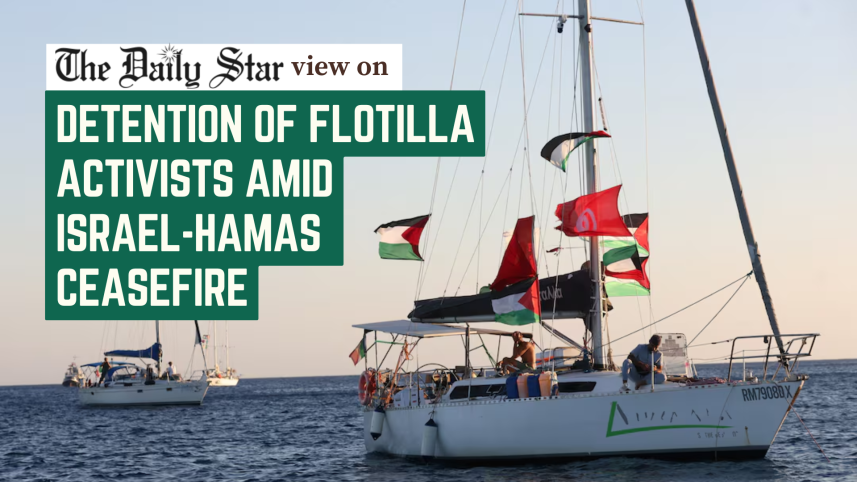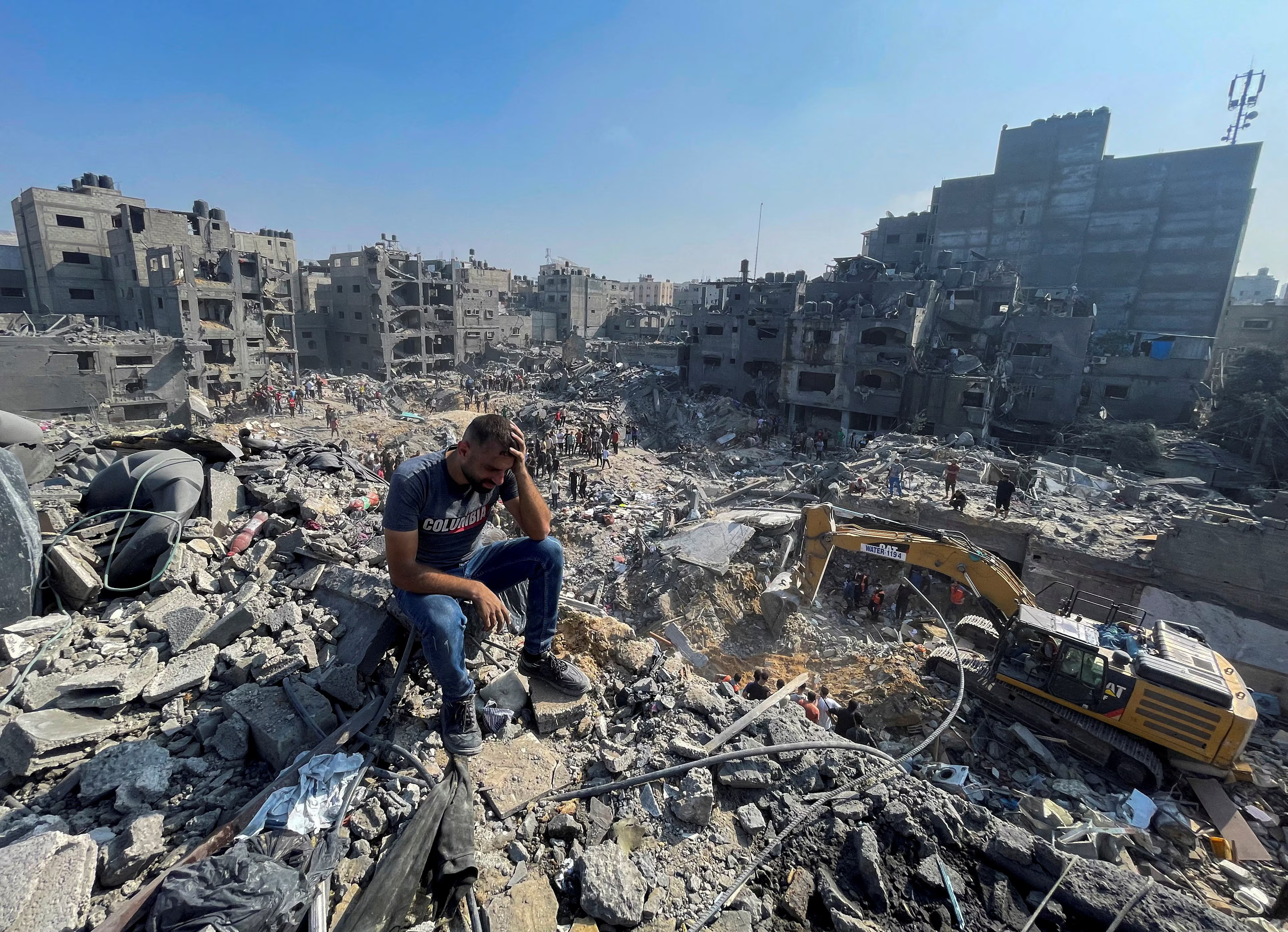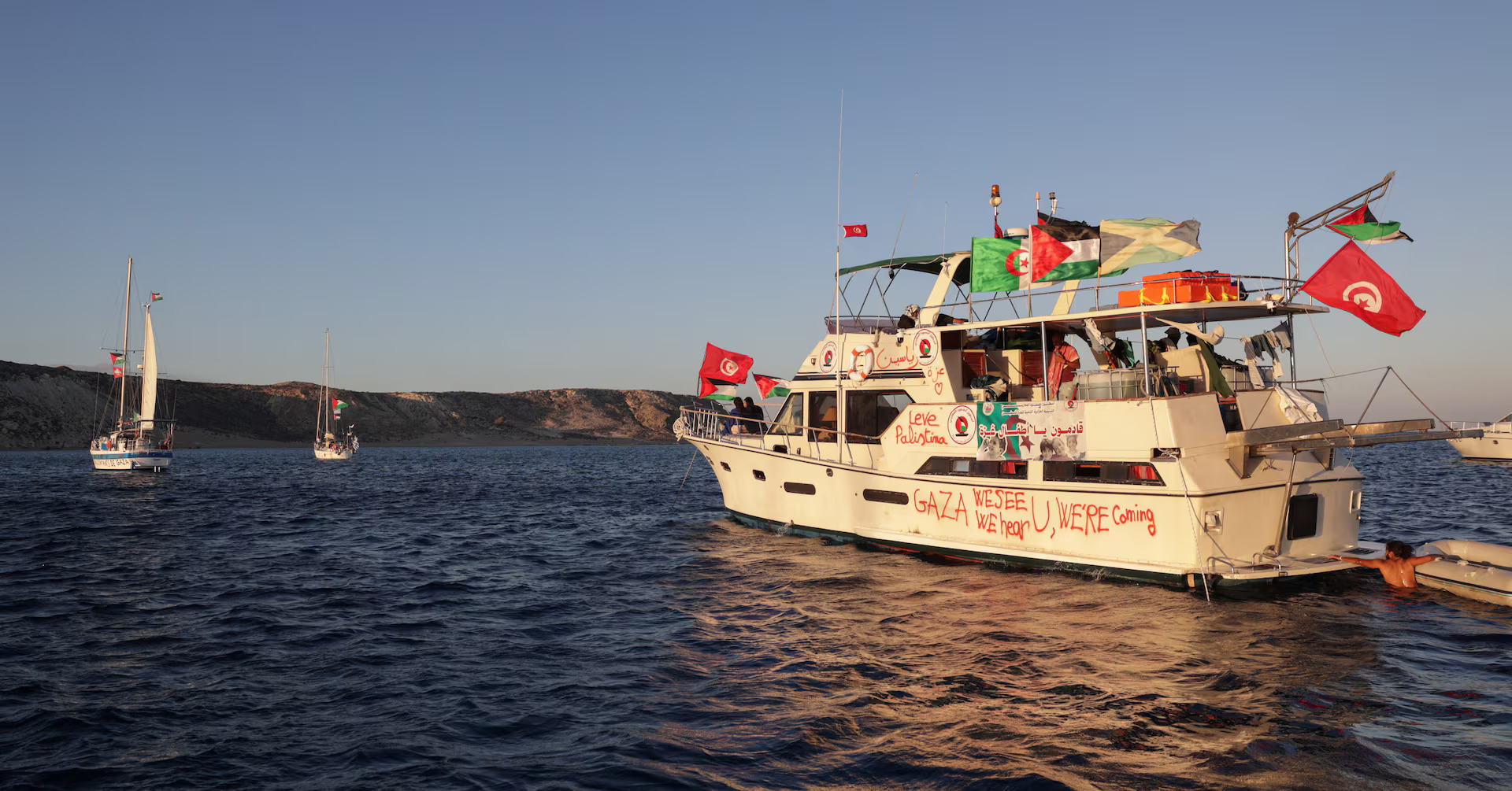Release detained Gaza flotilla activists

The waters off the coast of Gaza—already stained by endless conflict—witnessed another disturbing chapter this week with the brazen interception of the Conscience, a vessel carrying humanitarian aid. The detention of renowned Bangladeshi photographer Shahidul Alam, along with more than 140 journalists, doctors, and activists, at Israel's Ketziot Prison in the Negev Desert is a flagrant blow to the principles of international law and humanitarian action.
Israel's claim of enforcing a "legal naval blockade" in international waters rings hollow when applied to an unarmed civilian flotilla carrying vital medical supplies for Gaza's collapsing hospitals. The seizure has shaken the very notion of a neutral space for aid delivery and free expression. What's concerning is that Israel carried out a similar action last week against the Global Sumud Flotilla, comprising more than 40 vessels and nearly 450 activists, including climate activist Greta Thunberg. While most of the Global Sumud activists have since been deported, six of them, hailing from Norway, Morocco, and Spain, remain detained in Israel, highlighting both the severity and arbitrariness of these actions.
In this context, Bangladesh's diplomatic response must therefore be swift and unequivocal. The fact that Dhaka is having to rely on an unnamed "friendly Middle Eastern country" to secure Alam's release reveals the complex, often uncomfortable geopolitical tightrope that nations walk when confronting the Gaza crisis. The strong domestic reaction in Bangladesh, with widespread demands for Alam's immediate freedom, who left a prerecorded message declaring that he had been "kidnapped by the occupation forces of Israel," underlines the gravity of the situation.
Yet this outrage at sea unfolds against a fragile backdrop of hope on land, with the news that Israel and Hamas have signed off on the first phase of a US-led peace plan. According to a Reuters report, Israelis and Palestinians rejoiced after US President Donald Trump announced a ceasefire and hostage deal as part of his initiative to end a war in Gaza that has killed more than 67,000 people and reshaped the Middle East.
Still, euphoria must be tempered by caution. The limited details of the agreement—particularly the lack of clarity on its timing and on a post-war administration for Gaza—leave vast potential for collapse, as has happened with so many peace efforts before. The cessation of fighting is not peace; it is only the precondition for it. Even as the ceasefire plan was underway, Israeli strikes continued overnight and into Thursday morning on three Gaza City suburbs. Witnesses reported lines of smoke rising over Shejaia, Tuffah, and Zeitoun, though there were no immediate reports of casualties.
While we welcome the positive news of a potential ceasefire, it must not eclipse the grim reality of the detentions. The release of all detained activists—particularly Alam and the remaining six from the earlier flotilla—should be treated as a diplomatic priority.
 For all latest news, follow The Daily Star's Google News channel.
For all latest news, follow The Daily Star's Google News channel. 

Comments